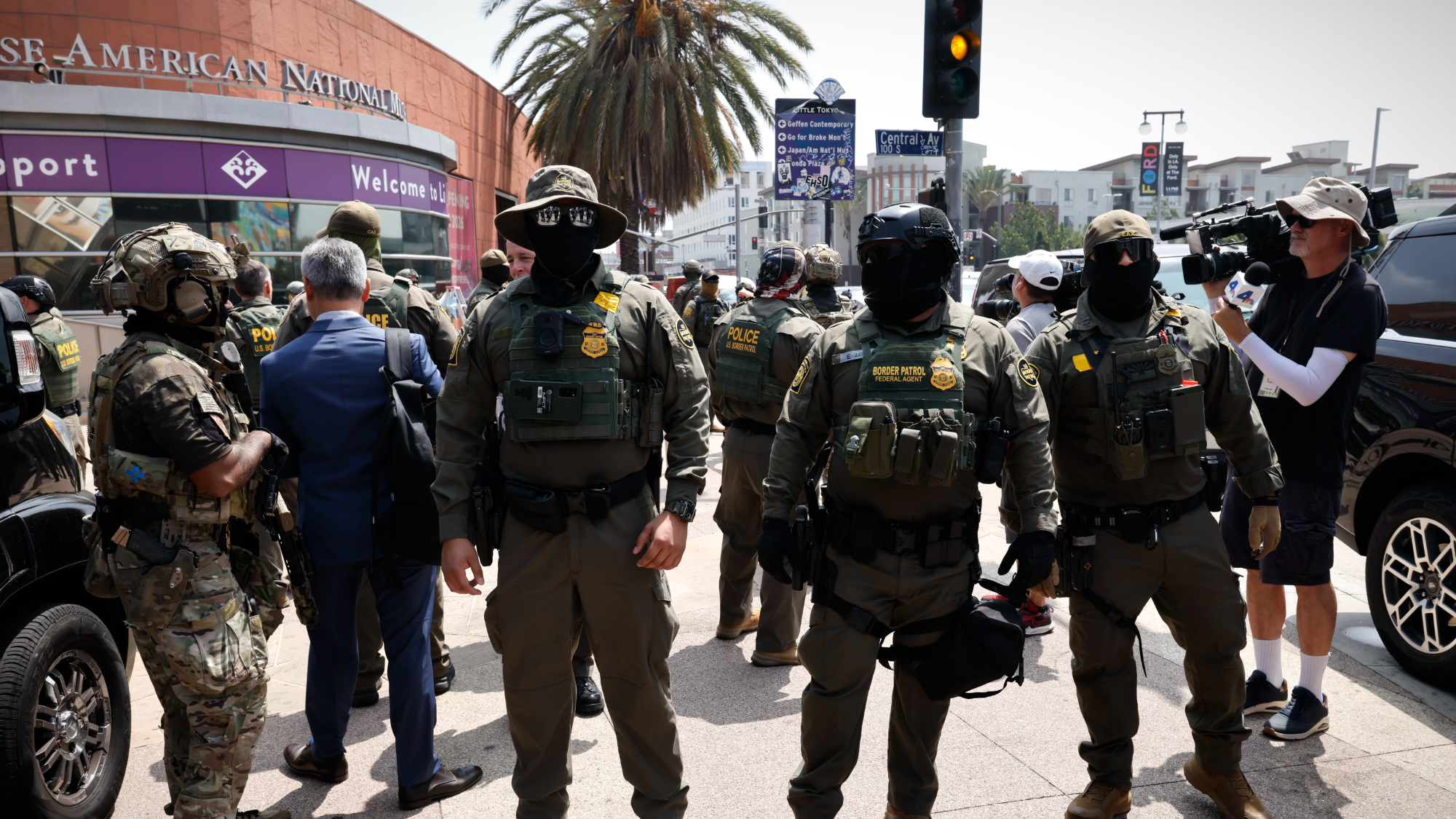Biden calls Cuba a 'failed state,' communism a 'failed system,' says the U.S. may beam in internet access

A free daily email with the biggest news stories of the day – and the best features from TheWeek.com
You are now subscribed
Your newsletter sign-up was successful
Cuba cut off internet access Sunday after Cubans held the country's largest anti-government protest in decades. When the government partially restored the internet on Wednesday, "images and videos circulated on social media that purported to show police officers breaking into Cubans' homes and arresting suspected protesters," The Washington Post reports. President Biden said earlier this week that the U.S. "stands firmly" with Cubans and their "clarion call for freedom," and on Thursday he suggested his administration may try to ensure that Cubans can communicate online.
"Communism is a failed system, universally failed system," and Cuba is, "unfortunately, a failed state and repressing their citizens," Biden said at a joint press conference with German Chancellor Angela Merkel on Thursday. "They've cut off access to the internet. We're considering where we have the technological ability to reinstate that access."

Earlier Thursday, Florida Gov. Ron DeSantis (R), two House Republicans, and the senior GOP commissioners on the Federal Communications Commission, Brendan Carr, urged Biden to approve experimental technologies to enable Cuban citizens to evade their government's internet blackouts.
The Week
Escape your echo chamber. Get the facts behind the news, plus analysis from multiple perspectives.

Sign up for The Week's Free Newsletters
From our morning news briefing to a weekly Good News Newsletter, get the best of The Week delivered directly to your inbox.
From our morning news briefing to a weekly Good News Newsletter, get the best of The Week delivered directly to your inbox.
Carr pointed to a decommissioned system called Loon, developed by Google and a company called Raven, that uses high-altitude hot air balloons to broadcast a wireless signal to specific areas. He said the balloons could be deployed about 20 miles off the Cuban coast, in international waters, for an unspecified cost.
As DeSantis was holding his press conference, White House Press Secretary Jen Psaki was calling the lack of internet access "a huge issue in Cuba and one that is very challenging for the people of Cuba." Privately, Politico reports, "Biden administration officials have been discussing the logistics of how to get around Cuban censorship, but the administration is still engaged in a monthslong review of Cuba policy."
Cubans could only access the internet at tourist hotels until 2013, when former President Barack Obama reached a deal with Cuba to restore diplomatic ties and allow U.S. telecommunications firms to offer internet and other services to the island, Reuters reported in 2019. Former President Donald Trump reversed many of Obama's Cuba policies, and a 2019 final report from a State Department task force concluded that the change in policies deterred U.S. companies from investing in Cuba, leaving Chinese companies to dominate the market. That's "worth challenging given concerns that the Cuban government potentially obtains its censorship equipment from Chinese internet infrastructure providers," the report advised.
A free daily email with the biggest news stories of the day – and the best features from TheWeek.com
Peter has worked as a news and culture writer and editor at The Week since the site's launch in 2008. He covers politics, world affairs, religion and cultural currents. His journalism career began as a copy editor at a financial newswire and has included editorial positions at The New York Times Magazine, Facts on File, and Oregon State University.
-
 Nordic combined: the Winter Olympics sport that bars women
Nordic combined: the Winter Olympics sport that bars womenIn The Spotlight Female athletes excluded from participation in demanding double-discipline events at Milano-Cortina
-
 Samurai: a ‘blockbuster’ display of Japanese heritage
Samurai: a ‘blockbuster’ display of Japanese heritageThe Week Recommends British Museum show offers a ‘scintillating journey’ through ‘a world of gore, power and artistic beauty’
-
 BMW iX3: a ‘revolution’ for the German car brand
BMW iX3: a ‘revolution’ for the German car brandThe Week Recommends The electric SUV promises a ‘great balance between ride comfort and driving fun’
-
 House votes to end Trump’s Canada tariffs
House votes to end Trump’s Canada tariffsSpeed Read Six Republicans joined with Democrats to repeal the president’s tariffs
-
 Bondi, Democrats clash over Epstein in hearing
Bondi, Democrats clash over Epstein in hearingSpeed Read Attorney General Pam Bondi ignored survivors of convicted sex offender Jeffrey Epstein and demanded that Democrats apologize to Trump
-
 El Paso airspace closure tied to FAA-Pentagon standoff
El Paso airspace closure tied to FAA-Pentagon standoffSpeed Read The closure in the Texas border city stemmed from disagreements between the Federal Aviation Administration and Pentagon officials over drone-related tests
-
 Judge blocks Trump suit for Michigan voter rolls
Judge blocks Trump suit for Michigan voter rollsSpeed Read A Trump-appointed federal judge rejected the administration’s demand for voters’ personal data
-
 US to send 200 troops to Nigeria to train army
US to send 200 troops to Nigeria to train armySpeed Read Trump has accused the West African government of failing to protect Christians from terrorist attacks
-
 Grand jury rejects charging 6 Democrats for ‘orders’ video
Grand jury rejects charging 6 Democrats for ‘orders’ videoSpeed Read The jury refused to indict Democratic lawmakers for a video in which they urged military members to resist illegal orders
-
 Judge rejects California’s ICE mask ban, OKs ID law
Judge rejects California’s ICE mask ban, OKs ID lawSpeed Read Federal law enforcement agents can wear masks but must display clear identification
-
 Lawmakers say Epstein files implicate 6 more men
Lawmakers say Epstein files implicate 6 more menSpeed Read The Trump department apparently blacked out the names of several people who should have been identified
